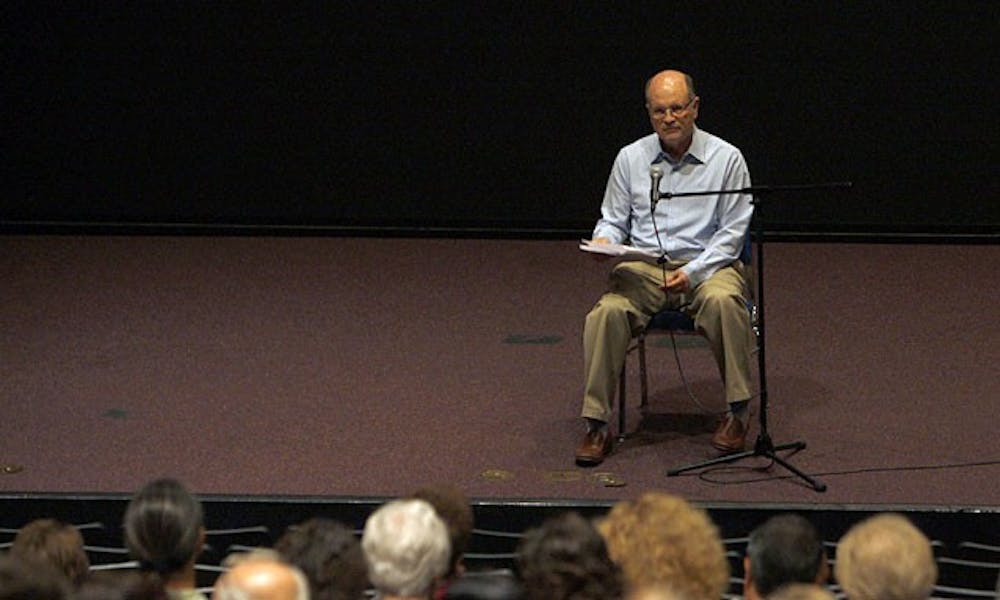Despite the Israeli-Palestinian conflict it portrays on screen, and the conflict provoked by its initial intended screening on Israeli television, a film by Director Ram Loevy had the reverse effect last night by bringing together the Duke and Durham communities.
Co-sponsors Brit Tzedek and Triangle Tikkun opened the doors of the Griffith Film Theater to Loevy and about 50 viewers for a presentation of the 1978 film ‘Khirbet Khizeh’ and a subsequent panel discussion with the director and Shai Ginsburg, assistant professor of Asian and Middle Eastern studies.
“The discussion is alive,” Loevy noted as justification for the film’s lasting significance. “I hope that this film had something to do with that.”
‘Khirbet Khizeh’ revives the story first conveyed in 1949 by S. Yizhar’s novella of the same title. It realistically depicts the young Israeli soldiers who drove Palestinians from their homes throughout the Israeli-Arab war of 1948.
“The most important thing about the film was that it broke something. It was a hidden thing that nobody would talk about, and suddenly it was out in the open,” Loevy said of how his film exposed the truth behind the expulsion of the Palistinians. He added that they did not necessarily leave their villages freely, as the Israeli public was led to believe at the time.
The on-screen controversy beget protests on the streets of Israel when Loevy tried to debut it on Israeli TV. The government had prohibited the film from being aired, and the network responded defiantly by displaying a blank screen for the duration of the film.
Silver screens everywhere are now free to shed light on the story of ‘Khirbet Khizeh’, which remains significant in light of the persistent Israeli-Palestinian conflict.
“The novella and the film are still relevant,” Ginsburg said. “In Israel, people have seen the film as commenting about Israel’s present relationship with the Palistinians.”
The medium in which ‘Khirbet Khizeh’ represents this unfolding story also marks a turn in Israeli history. Loevy said the film’s $80,000 budget was the highest allocated to any in Israel at the time.
Loevy took those funds and applied them to revolutionizing Israeli cinema, Ginsberg said.
“Duke decided to bring Ram Loevy because he is one of the most important and influential Israeli filmmakers, making some 60 dramas, documentaries and mini-series,” Ginsberg said. “Without him, one cannot imagine contemporary Israeli cinema.”
Duke students will have another opportunity to hear Ram Loevy’s perspective on Middle Eastern affairs and cinema when he presents clips from his films at a workshop Oct. 12.
Get The Chronicle straight to your inbox
Signup for our weekly newsletter. Cancel at any time.

